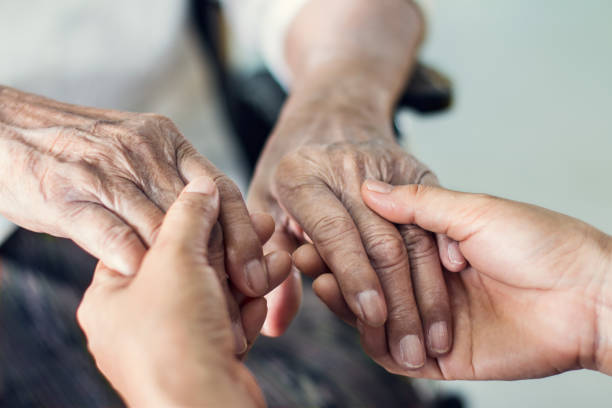In today’s aging society, seniors and their caregivers confront an array of challenges that can be both complex and multifaceted. Understanding these issues is vital to improving the quality of life for our elderly population and those who devote their time and energy to caring for them. This blog aims to shed light on the common hurdles faced by seniors and their caregivers and provide insights and potential strategies to address them effectively.
Contents
The Financial Strain of Elder Care
One of the most pressing challenges is the financial burden associated with elder care. Providing quality healthcare and maintaining a suitable living environment for seniors incur significant costs. The need for specialized medical care or assisted living facilities can further exacerbate these expenses. Unfortunately, these financial strains are often borne by family members who may lack the necessary resources, leading to increased stress and potential neglect of their personal needs.
The Emotional Toll of Caregiving
Caregiving, while rewarding, can also pose significant emotional challenges. Caregivers often juggle their personal lives with the demanding responsibility of looking after an elderly individual, leading to feelings of depression, anxiety, and, in some cases, caregiver burnout. Promoting mental health resources and support networks for caregivers is crucial in maintaining a stable and compassionate caregiving environment.
Another common issue facing seniors and caregivers is navigating complex healthcare systems. Understanding insurance coverages, medical terminologies, and the intricacies of certain treatment procedures can be daunting. This complexity often results in confusion and potential delays in receiving necessary medical care. Therefore, it is essential to educate seniors and caregivers about healthcare systems and provide them with resources to make informed decisions.
The Challenge of Limited Mobility
As seniors age, they often deal with reduced mobility due to various health conditions such as arthritis, osteoporosis, or neurological disorders. This limited mobility can restrict their ability to perform daily tasks and participate in social activities, contributing to a reduced quality of life. Providing accessible transportation options and home modifications can be effective solutions to enhance their mobility and independence.
The Issue of Social Isolation
Seniors, especially those living alone, often face social isolation. This lack of social interaction can lead to feelings of loneliness and contribute to mental health issues such as depression and anxiety. Encouraging community involvement, promoting social activities, and leveraging technology for communication can help combat these feelings of isolation and promote a sense of belonging among seniors.
The Need for Personalized Care

Every senior has unique needs and preferences when it comes to their care. Standardized care plans may not cater to these individual differences, leading to inefficient care delivery and dissatisfaction among seniors. Therefore, the shift towards personalized care, considering each senior’s personal preferences, needs, and values, is crucial for delivering effective and satisfactory elder care.
The Importance of Nutrition in Aging
Maintaining proper nutrition is vital for seniors, but it can pose a challenge due to factors like reduced appetite or limited ability to cook. Malnutrition can exacerbate existing health issues and contribute to a decreased quality of life. It’s essential to ensure seniors receive balanced meals and, if necessary, dietary supplements to meet their nutritional needs.
The Impact of Cognitive Decline
Cognitive decline, including conditions like dementia or Alzheimer’s, significantly affects many seniors. This decline can lead to difficulties in memory, communication, and performing routine tasks. It also places additional emotional and physical stress on caregivers. Utilizing cognitive therapies and promoting mental exercises can help slow cognitive decline and improve the quality of life for seniors.
The Importance of Regular Exercise
Regular exercise is integral to maintaining overall health and mobility in seniors. However, with aging, engaging in high-impact activities may become challenging. Promoting low-impact exercises like walking, swimming, or yoga can help seniors stay active, improve their balance and strength, and enhance their mood and cognitive function.
What Can Caregivers Do?
The key for caregivers is to be proactive and informed. Researching resources, understanding healthcare systems, staying connected with other caregivers, and regularly assessing the senior’s needs are all important elements of successful caregiving. Additionally, it’s essential to take time out for oneself and prioritize one’s mental health to effectively manage the challenges of caregiving.
At the end of the day, understanding and addressing these common issues is vital in creating a better future for our elderly population and their caregivers. With the right resources and support networks, we can ensure a healthy and happy life for seniors and those devoted to caring for them.
Conclusion
The senior years often come with a variety of challenges, both for the elderly individual and their caregivers. Taking proactive steps to understand the common issues facing seniors and their caregivers is essential in helping them navigate these complexities. With the right resources and support networks, we can ensure that our elderly population has access to quality care and a fulfilling life. It’s up to us as a society to recognize and address these issues so that our seniors can enjoy their later years with comfort and dignity.

